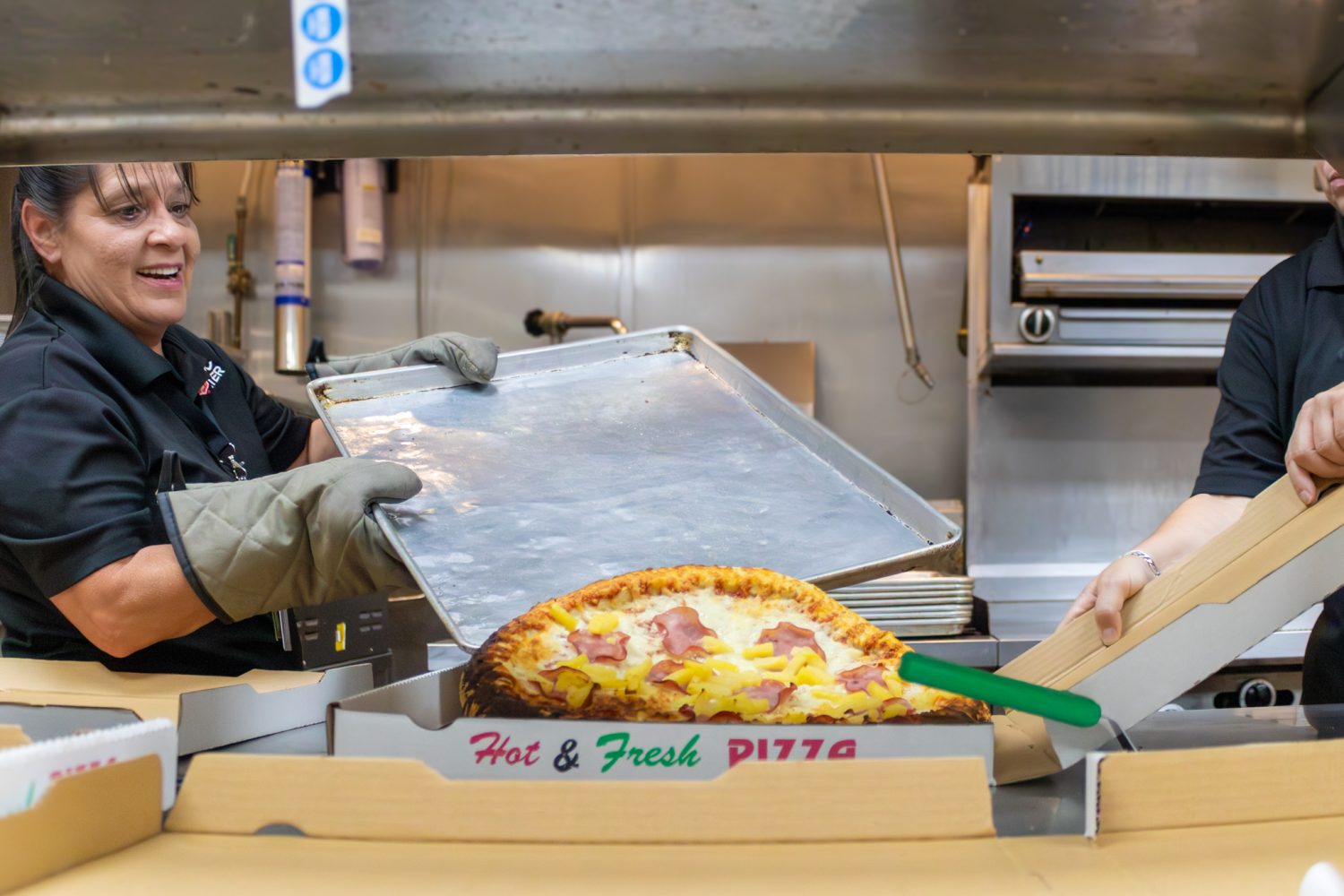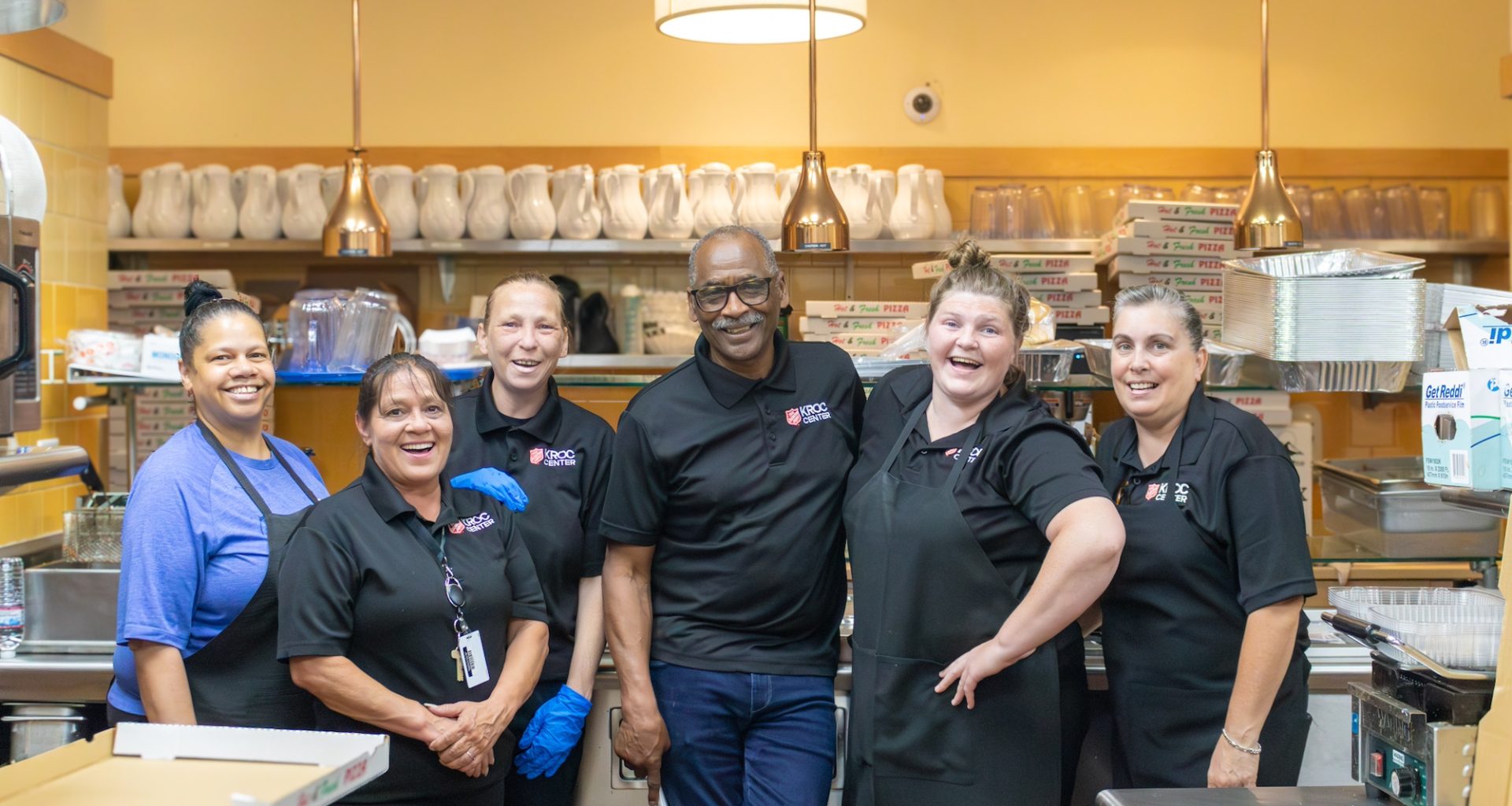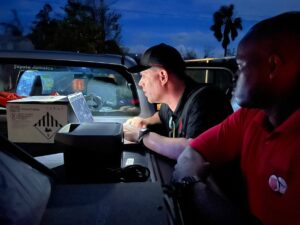Since the 2020 Oregon wildfires, Chef Greggery Peterson and his team have been feeding community members in need.
It was fall 2020 when Greggery Peterson, Head Chef/Event Coordinator for The Salvation Army Salem (Oregon) Ray and Joan Kroc Corps Community Center, got a phone call asking for help. Along with the COVID pandemic, Oregon had just experienced its most destructive wildfire season on record.
It was his friend, Tamra Goettsch, who works for Oregon’s Marion County.
“She knew I could get food to them for the fire victims,” Peterson said. “She said, ‘Can you make us 2,000 meals?’ I said, ‘Yeah, when?’ She said, ‘Today.’ I said, ‘No, but let’s talk.’”
Peterson headed to the fire evacuation staging area at the Oregon State Fairgrounds to assess the situation. He figured they didn’t need 2,000 meals that day, since people were still arriving and some restaurants were already there serving snacks. But he knew the fire victims and first responders would need more.
“We think even though people are experiencing homelessness, that doesn’t mean they can’t have a really good dinner.”
Chef Greggery Peterson
With the support of Kroc Center Corps Officer Captain Quinton Markham, Peterson and his team began preparing and delivering 1,500 meals daily for the fire survivors, 750 lunches and 750 dinners, in addition to their regular duties at the center.
“When all that happened, we became emergency service,” Peterson said.
As the need decreased, they reduced the total to 800 meals a day, 400 lunches and 400 dinners. They continued this service for almost a year, providing lunch and dinner, five days a week. Volunteers helped deliver the meals, first to shelters installed at the fairgrounds, and then to local hotels as survivors were rehoused.
The Kroc Center did this as a free service until the State of Oregon provided a contract and paid the center to continue until the crisis abated.
While the fire response ended, the food outreach hasn’t. Today, Peterson and his team prepare and deliver hot meals to Salem’s unhoused community, Monday through Friday.
“They’re quality meals,” Peterson said, noting they prepare a different meal each day except on Fridays, when they serve soup and sandwiches. “We think even though people are experiencing homelessness, that doesn’t mean they can’t have a really good dinner.”
For Peterson, his commitment to serving others is rooted in personal experience—it’s about giving back to the community that was there for him during a difficult time.
“I was homeless and addicted to drugs and alcohol,” Peterson said. “I reaffirmed my relationship with Jesus Christ 29 years ago. And he placed people on my journey. I was able to get sober and build my own restaurant from the ground up. I really got involved in the community…I got to see how Salem works. And I started to build relationships.”

This year, he said he’s celebrating 29 years of sobriety.
After years of running a successful restaurant, Peterson joined the Kroc Center team in 2019, the same year as Markham and Center Director Tony Frazier. The three shared a goal of increasing community outreach—showing people what the Kroc Center offered as well as helping people understand The Salvation Army and its mission to meet human needs in Jesus’ name without discrimination.
Unlike many Kroc Centers, the Salem Kroc Center kitchen is able to serve the unhoused community because its food service isn’t outsourced. Along with the ability to help those in need, the in-house food service allows The Salvation Army to expand its reach by bringing other groups into the center for catered events, thus allowing more people to realize how the Kroc Center—and The Salvation Army—enrich the community.
“Gregg provides an excellent example of what it means to love your neighbor,” Markham said. “He does this by seeking out opportunities to help those in need, making ministry connections in the community, and of course, feeding the hungry, which he does very, very well.”
Frazier said Peterson has “a heart of gold.”
“He has elevated everything his department does from serving the community to helping inspire the youth we work with,” he said. “He represents with a contagious passion, building strong relationships while attracting new resources and community organizations to engage with us. And of course, he and his team make great food.”
Do Good:
- Caring Magazine is a magazine from The Salvation Army for people who care. People like you! Subscribe to the list and join 26k+ people who care. You’ll get weekly inspiration in the Do Good Digest sent right to your inbox.












